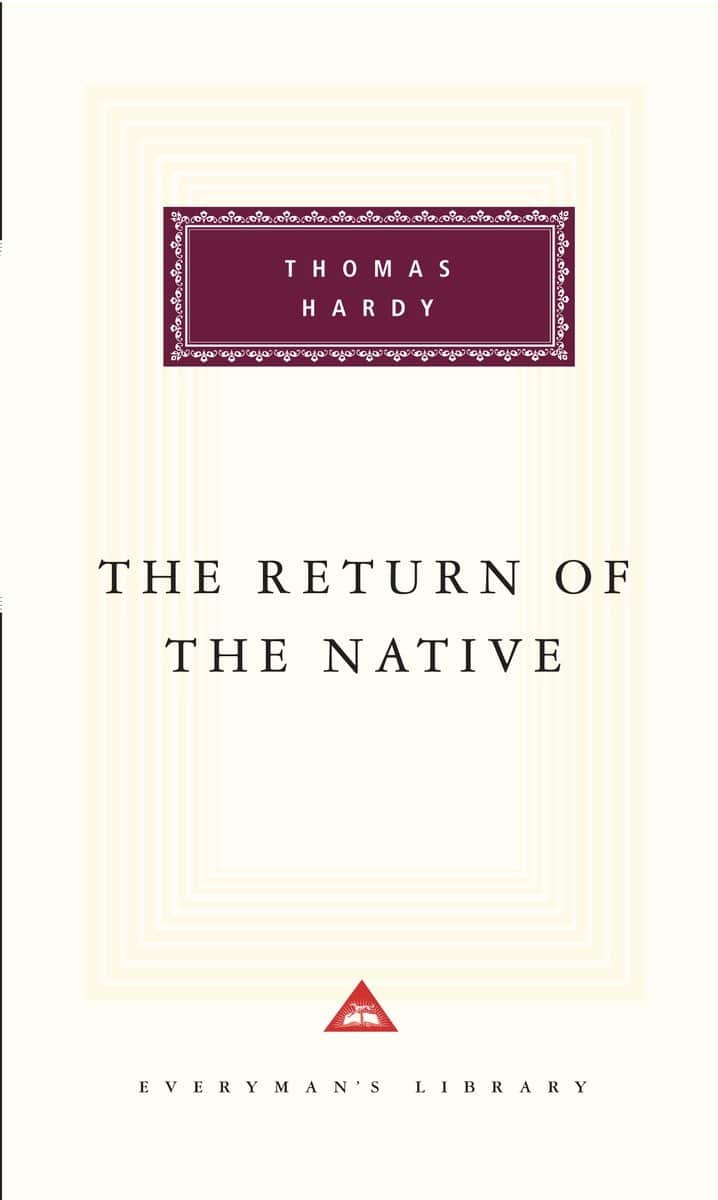The Return of the Native: Introduction by John Bayley
19.00 JOD
Please allow 2 – 5 weeks for delivery of this item
Description
Eustacia Vye longs to escape from Egdon Heath, but the man she chooses to save her longs to stay. Out of their struggle, the unfulfilled passion of his heroine, and the daily rhythms of late-nineteenth-century rural life, Hardy builds a drama fully worthy of the magnificent stage on which he places it. The Return of the Native is dominated by the brooding presence of Egdon Heath, located in Thomas Hardy’s imaginary Wessex, and in no other book did Hardy’s extraordinary feeling for landscape blend so perfectly with his austere, stoic vision of human fate.Once more he treats his favorite theme of the mismatched couple with masterly pathos and understatement.
Additional information
| Weight | 0.59 kg |
|---|---|
| Dimensions | 2.54 × 13.47 × 21.09 cm |
| PubliCanadation City/Country | USA |
| by | |
| Format | Hardback |
| Language | |
| Pages | 552 |
| Publisher | |
| Year Published | 1992-11-3 |
| Imprint | |
| ISBN 10 | 0679417303 |
| About The Author | THOMAS HARDY, whose writings immortalized the Wessex countryside and dramatized his sense of the inevitable tragedy of life, was born near Egdon Heath in Dorset in 1840, the eldest child of a prosperous stonemason. As a youth he trained as an architect and in 1862 obtained a post in London. During this time he began seriously to write poetry, which remained his first literary love and his last. In 1867-68, his first novel was refused publication, but Under the Greenwood Tree (1872), his first Wessex novel, did well enough to convince him to continue writing. In 1874, Far from the Madding Crowd, published serially and anonymously in the Cornhill Magazine, became a great success. Hardy married Emma Gifford in 1874, and in 1875 they settled at Max Gate in Dorchester, where he lived the rest of his life. There he wrote The Return of the Native (1878), The Mayor of Casterbridge (1886), Tess of the d’Urbervilles (1891), and Jude the Obscure (1895). With Tess, Hardy clashed with the expectations of his audience; a storm of abuse broke over the “infidelity” and “obscenity” of this great novel he had subtitled “A Pure Woman Faithfully Presented.” Jude the Obscure aroused even greater indignation and was denounced as pornography. Hardy’s disgust at the reaction to Jude led him to announce in 1896 that he would never write fiction again. He published Wessex Poems in 1898, Poems of the Past and Present in 1901, and from 1903 to 1908, The Dynasts, a huge drama in which Hardy’s conception of the Immanent Will, implicit in the tragic novels, is most clearly stated. In 1912, Hardy’s wife, Emma, died. The marriage was childless and had long been a troubled one, but in the years after her death, Hardy memorialized her in several poems. At seventy-four, he married his longtime secretary, Florence Dugdale, herself a writer of children’s books and articles, with whom he lived happily until his death in 1928. His heart was buried in the Wessex countryside; his ashes were placed next to Charles Dickens’s in the Poet’s Corner of Westminster Abbey. |
“Most of Hardy’s novels, and particularly the early ones, have a Shakespearean power of creating a unique world and climate of being . . . The Return of the Native is . . . thoughtful, valedictory, poetic, tinged with the somberness of an uncertainty which seems to well up from the depths of the author’s own subconscious . . . Hardy’s sense of the tragic life of human beings, mere small fragments of consciousness in a vast uncaring universe, comes directly from his own youthful awareness of the place and circumstances described in the novel.” –from the Introduction by John Bayley |
|
| Excerpt From Book | A SATURDAY afternoon in November was approaching the time of twilight, and the vast tract of unenclosed wild known as Egdon Heath embrowned itself moment by moment. Overhead the hollow stretch of whitish cloud shutting out the sky was as a tent which had the whole heath for its floor. The heaven being spread with this pallid screen and the earth with the darkest vegetation, their meeting-line at the horizon was clearly marked. In such contrast the heath wore the appearance of an instalment of night which had taken up its place before its astronomical hour was come: darkness had to a great extent arrived hereon, while day stood distinct in the sky. Looking upwards, a furze-cutter would have been inclined to continue work; looking down, he would have decided to finish his faggot and go home. The distant rims of the world and of the firmament seemed to be a division in time no less than a division in matter. The face of the heath by its mere complexion added half an hour to evening; it could in like manner retard the dawn, sadden noon, anticipate the frowning of storms scarcely generated, and intensify the opacity of a moonless midnight to a cause of shaking dread. In fact, precisely at this transitional point of its nightly roll into darkness the great and particular glory of the Egdon waste began, and nobody could be said to understand the heath who had not been there at such a time. It could best be felt when it could not clearly be seen, its complete effect and explanation lying in this and the succeeding hours before the next dawn: then, and only then, did it tell its true tale. The spot was, indeed, a near relation of night, and when night showed itself an apparent tendency to gravitate together could be perceived in its shades and the scene. The sombre stretch of rounds and hollows seemed to rise and meet the evening gloom in pure sympathy, the heath exhaling darkness as rapidly as the heavens precipitated it. And so the obscurity in the air and the obscurity in the land closed together in a black fraternization towards which each advanced half-way. The place became full of a watchful intentness now; for when other things sank brooding to sleep the heath appeared slowly to awake and listen. Every night its Titanic form seemed to await something; but it had waited thus, unmoved, during so many centuries, through the crises of so many things, that it could only be imagined to await one last crisis—the final overthrow. |
| Series |
Only logged in customers who have purchased this product may leave a review.






Reviews
There are no reviews yet.